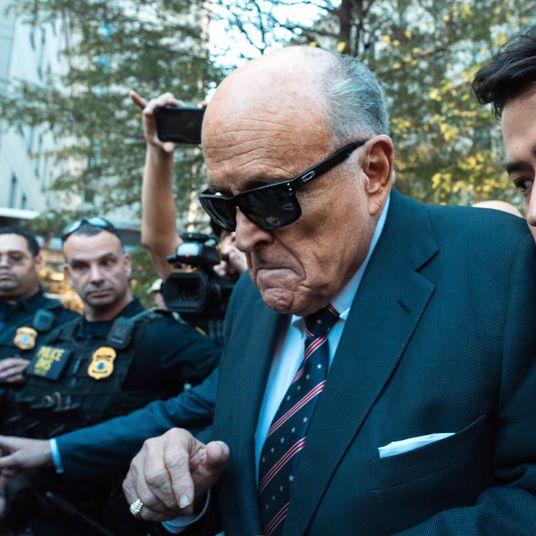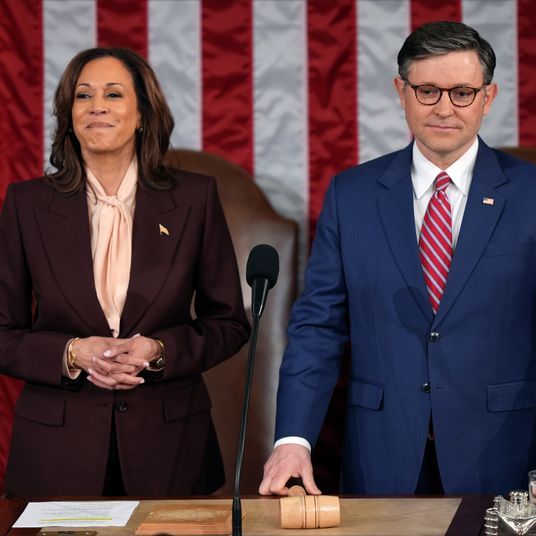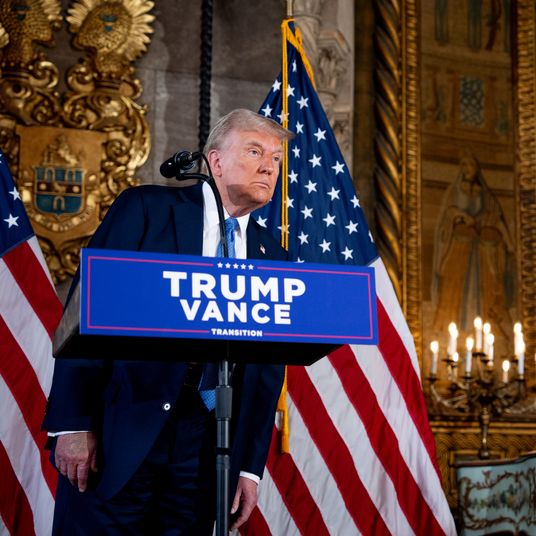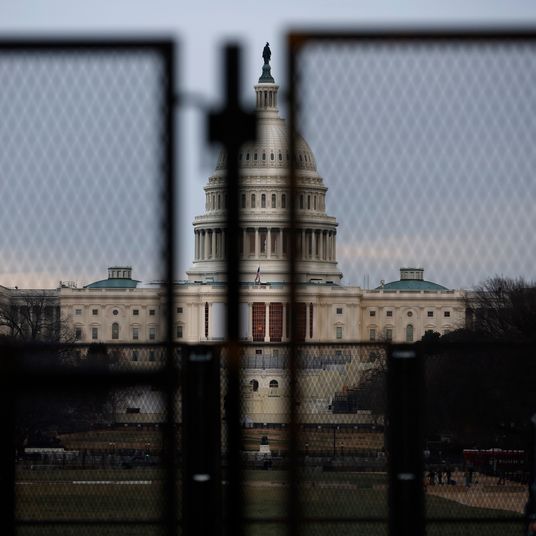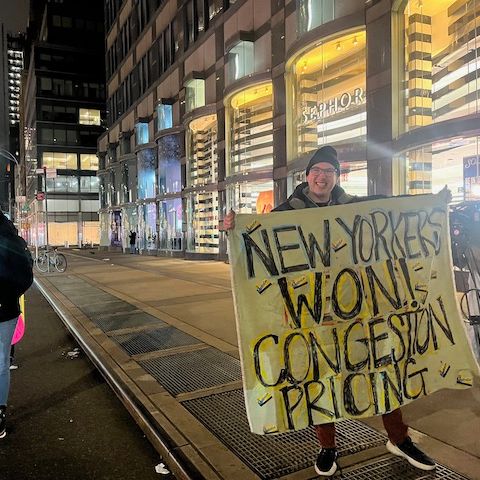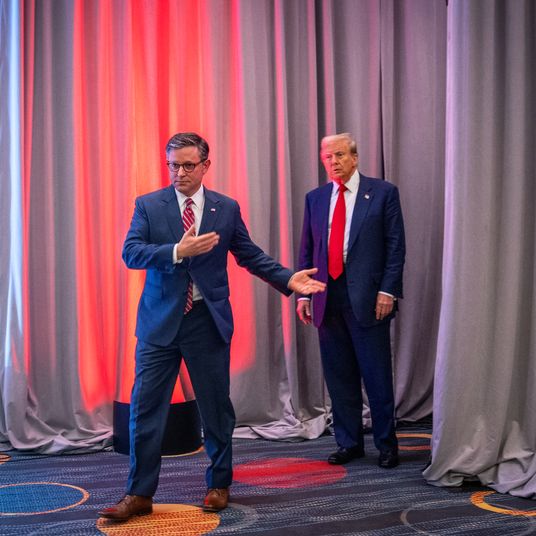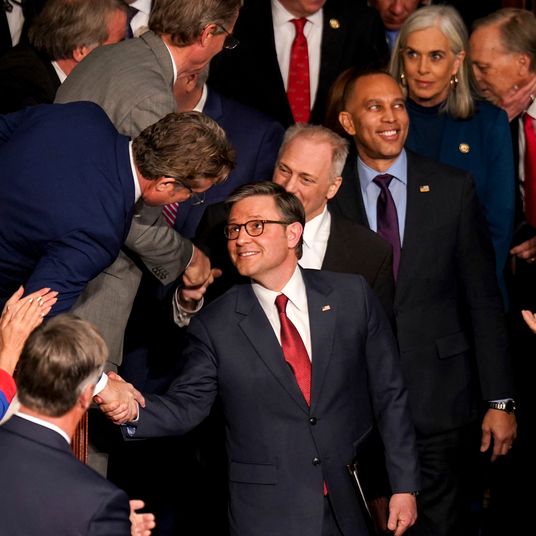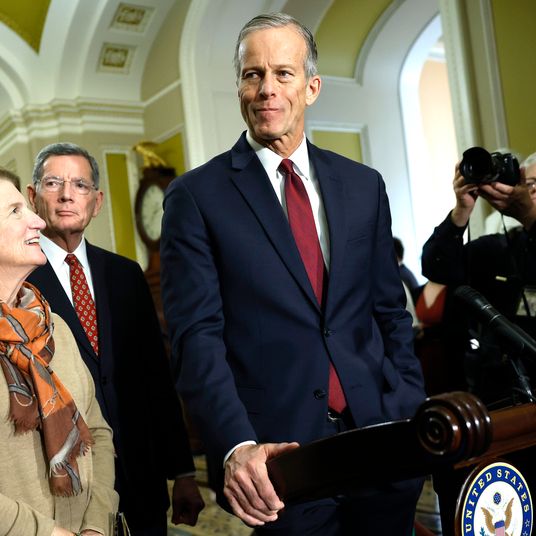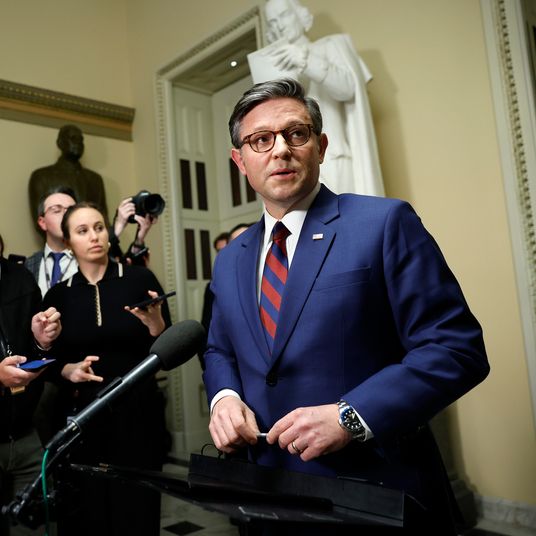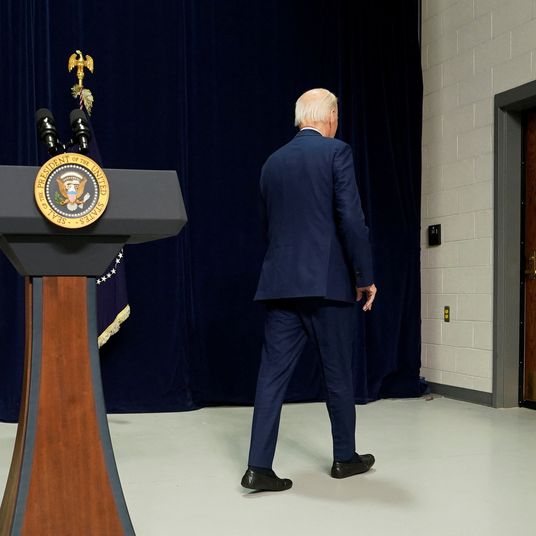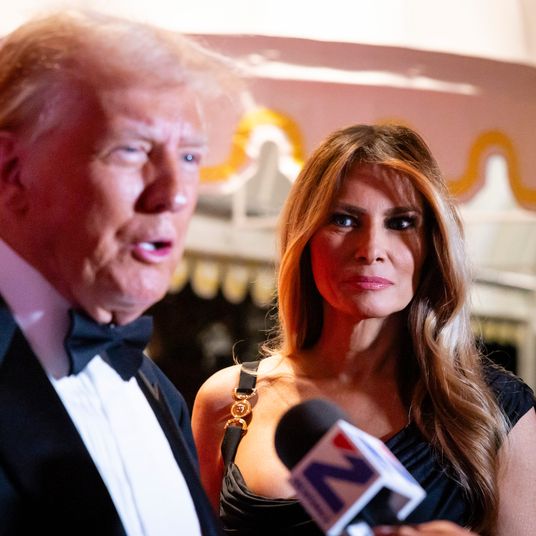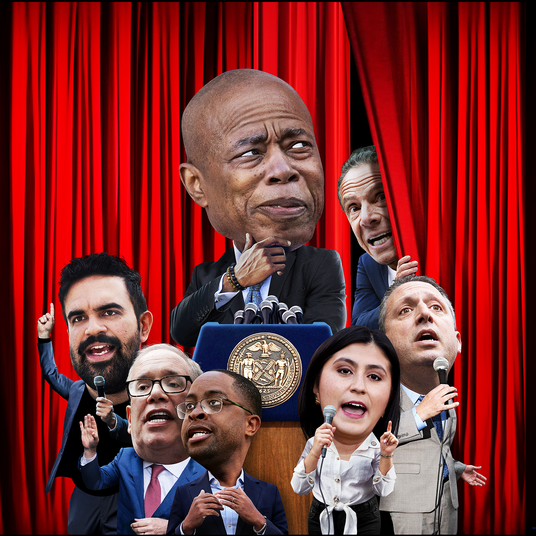
If you want a post-2020-election scenario that’s perilous fun, consider the possibility that control of the U.S. Senate (crucial to the winner of the presidential race, no matter whom that might be) will hang in the balance as voters in an increasingly polarized Georgia choose a senator in a January 5, 2021 runoff. That could happen, because the election of someone to finish the Senate term of Republican Johnny Isakson, who resigned at the end of 2019, is a special election being conducted by a nonpartisan “jungle primary” on Election Day, November 3, followed by the aforementioned runoff if no one wins a majority. That seems very likely, since there are 14 candidates, including two strong Republicans and one strong Democrat, in the field.
One of those strong Republicans is the current occupant of the seat, Kelly Loeffler. She is a political novice who was appointed by Governor Brian Kemp, reportedly because she’s a woman who might help the GOP stanch losses among suburban women, and because she has (in conjunction with her husband, the chairman of the New York Stock Exchange) more money than God and is willing to spend it on her own campaign.
This appointment mightily displeased Kemp’s ally and benefactor Donald Trump. POTUS wanted the prize to go to U.S. representative Doug Collins, a frothing MAGA-man who distinguished himself in his defense of Trump as ranking Republican on the House Judiciary Committee during the impeachment wars. So Collins quickly announced he’d challenge Loeffler as a RINO squish in the special election, while Democrats quickly consolidated support behind the Reverend Raphael Warnock, pastor of the legendary Ebenezer Baptist Church in Atlanta. Both Collins and Warnock were undoubtedly cheered when the only attention Loeffler drew as a fledgling senator was in two rounds of terrible publicity about stock trades she and her hubby made just prior to the coronavirus outbreak that had the aroma of, if not necessarily the legal criteria for, insider trading.
Loeffler finally announced that she and her hubby would liquidate their individual stock holdings. But the damage was done, as Cook Political Report’s Jessica Taylor observed after commenting that Loeffler’s handling of the whole saga “looked like a lesson in how not to manage a crisis”:
[T]he political axiom holds — if you’re explaining, you’re losing. And many of those details are likely to be lost in the jumble of the current crisis. The campaign ads from this write themselves — an extremely wealthy senator was more worried about her bottom line as millions of Americans are losing their jobs and seeing their retirement accounts and investments nosedive …
[H]er wealth, given the stock controversies, is likely to be wielded as a double-edged sword. And, as I wrote last year for NPR, self-funding candidates rarely succeed. In 2016, just a quarter of candidates who bankrolled at least half of their own House or Senate campaigns ended up winning. In 2018, only 18% were successful. And she’ll also need better TV ads than her first few ones out of the gate, where she appeared extremely uncomfortable and detached on camera.
Her opponents likely smell blood in the water, and even though Loeffler has done everything possible to suck up to Trump since joining the Senate, she still has to worry about the GOP’s warrior-king backing Collins’s challenge, particularly after this development, per Fox News:
A pro-Trump super PAC announced Wednesday that it is endorsing Rep. Doug Collins, R-Ga., for Georgia’s U.S. Senate seat as the congressman continues his controversial campaign to unseat incumbent Sen. Kelly Loeffler, R-Ga., in a special election this November.
The endorsement from Great America PAC, which boasts that it has “raised and spent $40 million in support of Donald Trump’s candidacy, presidency, and agenda,” follows an endorsement of Collins earlier this week by Rep. Drew Ferguson, R-Ga., who became the first member of the Georgia congressional delegation to back Collins’s Senate bid.
Drew Ferguson is a member of the House GOP leadership, which is an indicator that Loeffler’s staunch support from Mitch McConnell does not mean total Republican Establishment backing, particularly when it comes to Team Trump and to Collins’s House colleagues. Limited public-opinion research shows Loeffler is not off to a great start, Cook Political Report’s Taylor reports:
An internal survey from Collins’s campaign conducted by Battleground Connect on March 31–April 1 showed Loeffler in a distant third place as a result of the scandal, with Collins at 36%, Warnock at 16% and Loeffler at 13%. Democratic businessman Matt Lieberman, the son of the former vice presidential nominee and Connective Sen. Joe Lieberman, was at 11%. Collins’s allies point out these numbers come even as the congressman was subject to millions of dollars of negative TV ads after he dared to challenge Loeffler.
Since the special election’s first round will coincide with perhaps the most polarized general election in recent political history, the odds are very low that more than one Republican can make it into a runoff with (likely) Warnock. With Collins and Loeffler pounding each other for months, the GOP will not necessarily maintain its past partisan advantage in Georgia runoffs. And if Senate control is on the line, all bets are off. If the pandemic is over and people can vote without fear of illness or death, we could see every Georgia registered voter being herded to the polls by the assembled forces of both national parties. If she’s still around, Loeffler better be prepared to spend it all.








